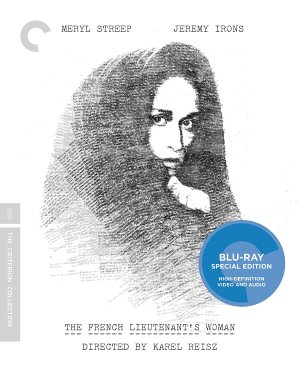The French Lieutenant’s Woman

See more details, packaging, or compare
Synopsis
An astounding array of talent came together for the big-screen adaptation of John Fowles’s novel The French Lieutenant’s Woman, a postmodern masterpiece that had been considered unfilmable. With an ingenious script by the Nobel Prize–winning playwright Harold Pinter, British New Wave trailblazer Karel Reisz transforms Fowles’s tale of scandalous romance into an arresting, hugely entertaining movie about cinema. In Pinter’s reimagining, Jeremy Irons and Meryl Streep star in parallel narratives, as a Victorian-era gentleman and the social outcast he risks everything to love, and as the contemporary actors playing those roles in a film production, and immersed in their own forbidden affair. Shot by the consummate cinematographer Freddie Francis and scored by the venerated composer and conductor Carl Davis, this is a beguiling, intellectually nimble feat of filmmaking, starring a pair of legendary actors in early leading roles.
Picture 9/10
Karel Reisz’s adaptation of John Fowles’ “unfilmmable” novel The French Lieutenant’s Woman gets a new Blu-ray edition from The Criterion Collection, who present the film in its original aspect ratio of about 1.85:1 on this dual-layer disc. The new 1080p/24hz high-definition presentation comes from a new 2K restoration created from the original 35mm negative.
This is one of the nicer looking MGM transfers I’ve seen put out by Criterion, which usually present more obvious (if mild) compression issues. That’s not to say this one is perfect (a couple of low lit scenes can look mildly noisy, but it does render film grain rather cleanly while delivering an incredibly sharp and highly detailed image. Many of the exterior shots are especially impressive, particularly the many scenes that take place in the wooded area outside of the town, Lyme Regis, central to the story, as are scenes where Jeremy Iron’s one character is looking for fossils in a rocky wall. The opening shot, along with a few other shots, take place in a fog and the fog is also rendered cleanly without banding glitches. As far as digital anomalies in the transfer go I couldn’t detect much.
Colours look fantastic as well, greens especially looking particularly rich, and black levels look deep and inky, which help in delivering wonderful shadow details. Crushing is also not an issue. The print has been wonderfully cleaned up and I don’t recall any instances of dirt or debris, though there are a couple of moments where an optical zoom is used to close in on particular characters that are a bit jolting since the image quality does degrade significantly. Otherwise I can’t really fault the image for much of anything.










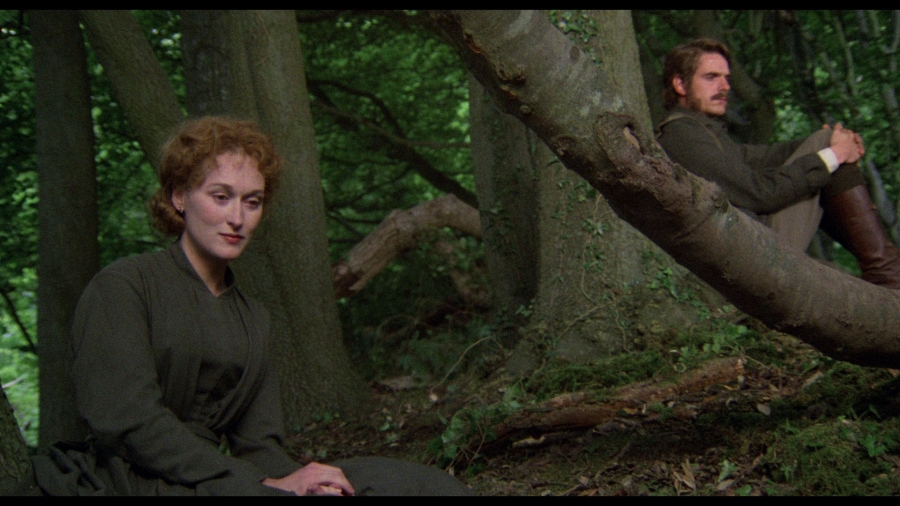

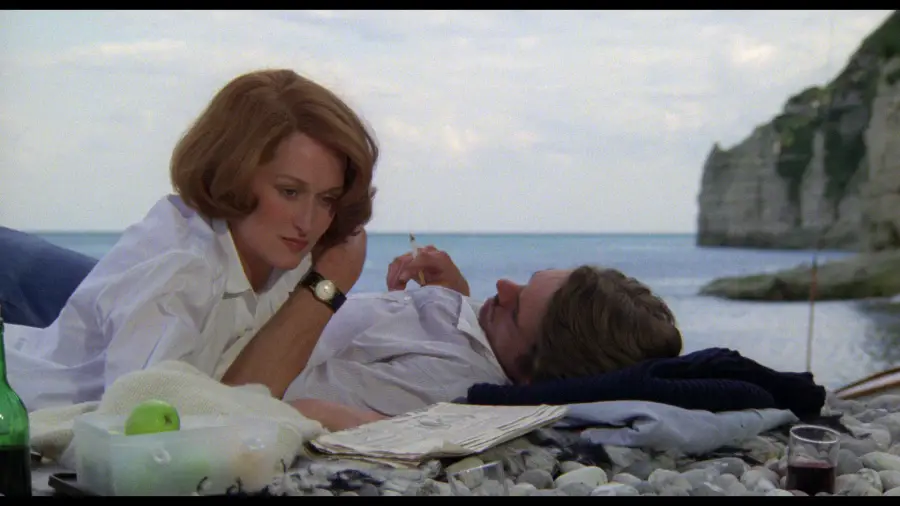
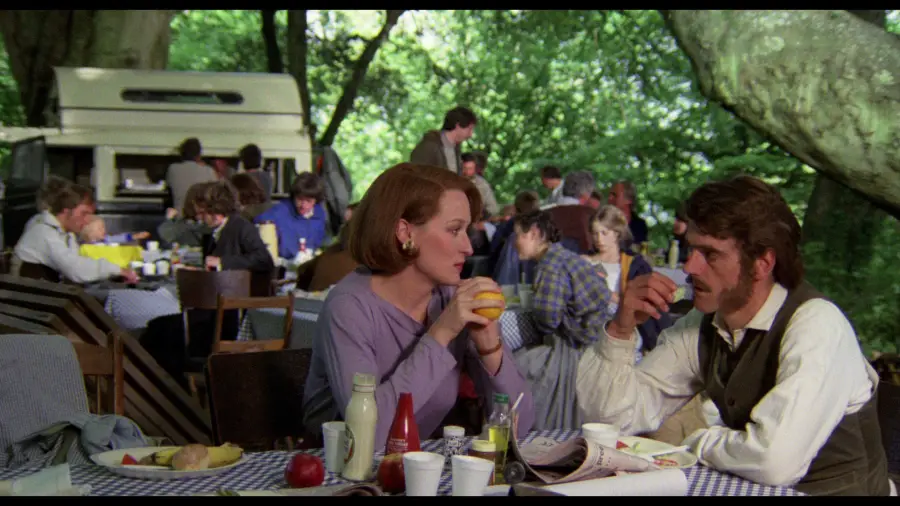


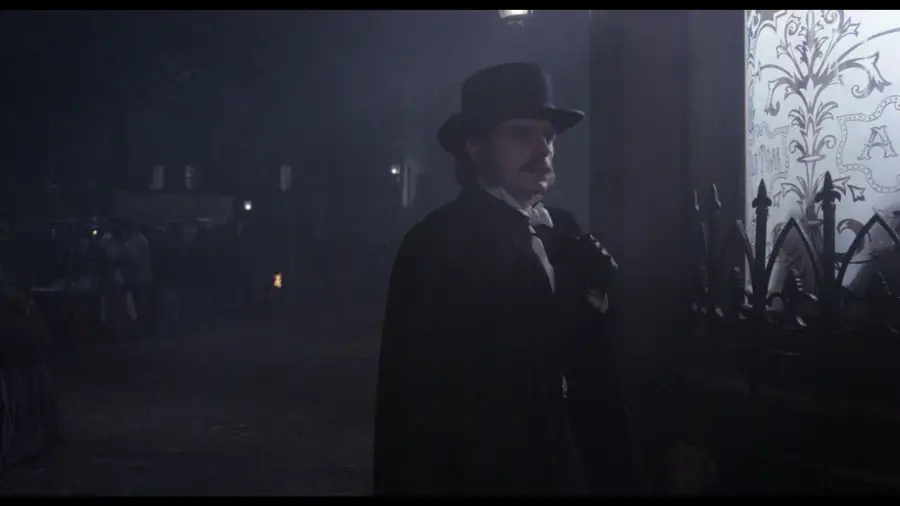























Audio 8/10
For a mono track (presented here in linear PCM 1.0) what we get for the film is unexpectedly robust. Scenes with the waves crashing against the Cobb in Lyme Regis are nicely mixed and deliver superb fidelity, as do even some of the quieter sound effects. Dialogue sounds clean and natural, easy to understand, never sounding clunky or tinny. And Carl Davis’ score also manages to come off rich and clean, with a wide bit of range to it, never screeching or sounding flat itself.
Despite the technical limitations and the age of the track it’s a fantastic sounding one.
Extras 8/10
Though the film did well critically and commercially at the time of its release it has become somewhat forgotten in the decades since (I knew of the book but admittedly was unaware of a film adaptation) and Criterion’s special edition works to sort of reevaluate the film and put it in the context of the time and how it works as an adaptation. For the most part they succeed.
We actually get a scholarly supplement with a new 20-minute interview featuring Ian Christie. Christie fits the film in with the number of films coming out during the 70s and early 80s that were more self-referential, falling under the category of “post-modern”, which fits the style of the novel where the book itself, thanks to its narrator, is “self-aware.” When I first started the feature I was expecting Christie to go over the novel in more detail, comparing it to the film, pointing out how the filmmakers got around the fairly difficult narrative, but he disappointingly talks very little about this. Instead he talks about what Fowles was trying to do with the book with its examination and deconstruction of Victorian literature but then gives a general overview on the making of the film, goes over its release and reception, and then talks a bit about Lyme Regis and his visit there with his son. Overall Christie offers a fine enough overview of the film and its release but I was expecting more about the book itself.
Thankfully the next feature, a 1981 episode of The South Bank Show, covers that ground. Running 51-minutes and featuring interviews with director Karel Reisz, screenwriter Harold Pinter, and author John Fowles, it’s divided into two halves with the first half focusing heavily on Fowles and his novel. There’s an extensive interview with Fowles, who talks about the origins of the novel, how it developed, and then his thoughts on Victorian literature. The second half of the segment then focuses primarily on the film, the adaptation in particular. Here both Pinter and Reisz talk about the difficult narrative, which features a playful narrator and then a fairly complicated structure (the book has multiple endings for starters). Pinter says that to truly adapt as it is in the book would have required an onscreen narrator talking to the audience but then that would of course lose the playful narrative and be nowhere near as fun. They also had to address how the novel actually takes the perspective of a modern person looking back at the time period, as well as the fact the book has multiple endings. This is where they came up with the idea of adding the sub love story featuring the two actors having their own illicit affair while filming an adaptation of The French Lieutenant’s Woman. They could solve a number of problems, from being able to sort of capture how the novel gets sidetracked with other stories by cutting suddenly to this modern story, to being able to add a modern examination of the Victorian era with the two actors talking about the story and their roles (particularly a scene where they talk about prostitution during this period), to also being able to have multiple endings, though only two of them. The segment as a whole is excellent and I’m eternally glad Criterion seems to have endless access to this stuff as it offers a wonderful amount of detail about the novel and its adaptation.
Criterion then provides newly recorded interviews with actors Meryl Streep and Jeremy Irons, as well as editor John Bloom under Emotional Uncertainties. Bloom talks about the film in terms of its structure and the difficulty in deciding where to place certain edits, particularly when cutting to the modern love story, and then how some decisions about the structure of certain scenes were made on the fly during the construction of the film. He also talks a bit about how the performances add so many layers to the film, particularly a scene near the end where Streep gives a little laugh where it may be otherwise inappropriate. Both Irons and Streep talk about coming on board to the film and their admiration for the script, as well as the task of playing two different characters in the film. There’s also a couple of amusing throwaway anecdotes like how cinematographer Freddie Francis kept calling Irons “Jeffrey” all through the production. It runs about 31-minutes.
There’s also a new 21-minute interview with composer Carl Davis. Playing a few samples at his piano throughout (including somewhat different variations) Davis talks about the process of working with Reisz on creating the score and how Reisz ended up editing into the film, which was a little different than he envisioned. He offers some interesting insights on the role of a composer in what is essentially a group effort where everyone comes together with their talents and make the best film possible.
The disc then closes with the film’s original theatrical trailer and the release includes an insert (one of their road-map ones, though one side features new artwork) featuring an essay on the film by Lucy Bolton. Bolton touches on the Victorian love story and the modern one, explaining how the latter helps in adapting the novel, while also looking at the performances (particularly Streep’s) and then the differing styles between the two stories.
A commentary would have proved worthwhile I think, along with maybe something along the lines of visual essay to maybe go over the book and film. The supplements do cover the adaptation fairly well, though I felt more was missing and maybe some sort of custom feature focusing on this aspect would have proved most beneficial. As it is, though, it’s still a fairly strong set of supplements.
Closing
Criterion puts together a nice special edition for the film, adequately covering the adaptation and the production. But it’s the lovely presentation that makes this release a worthwhile one.
